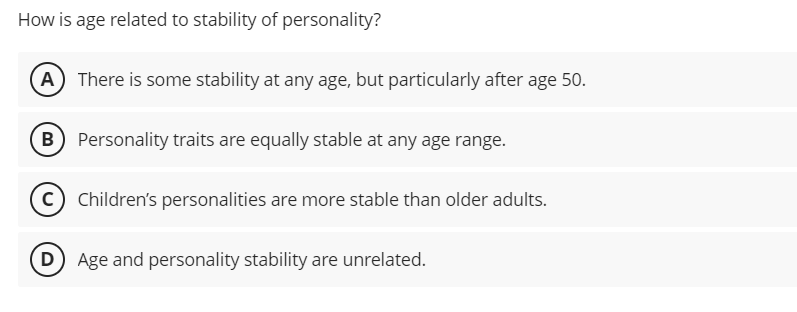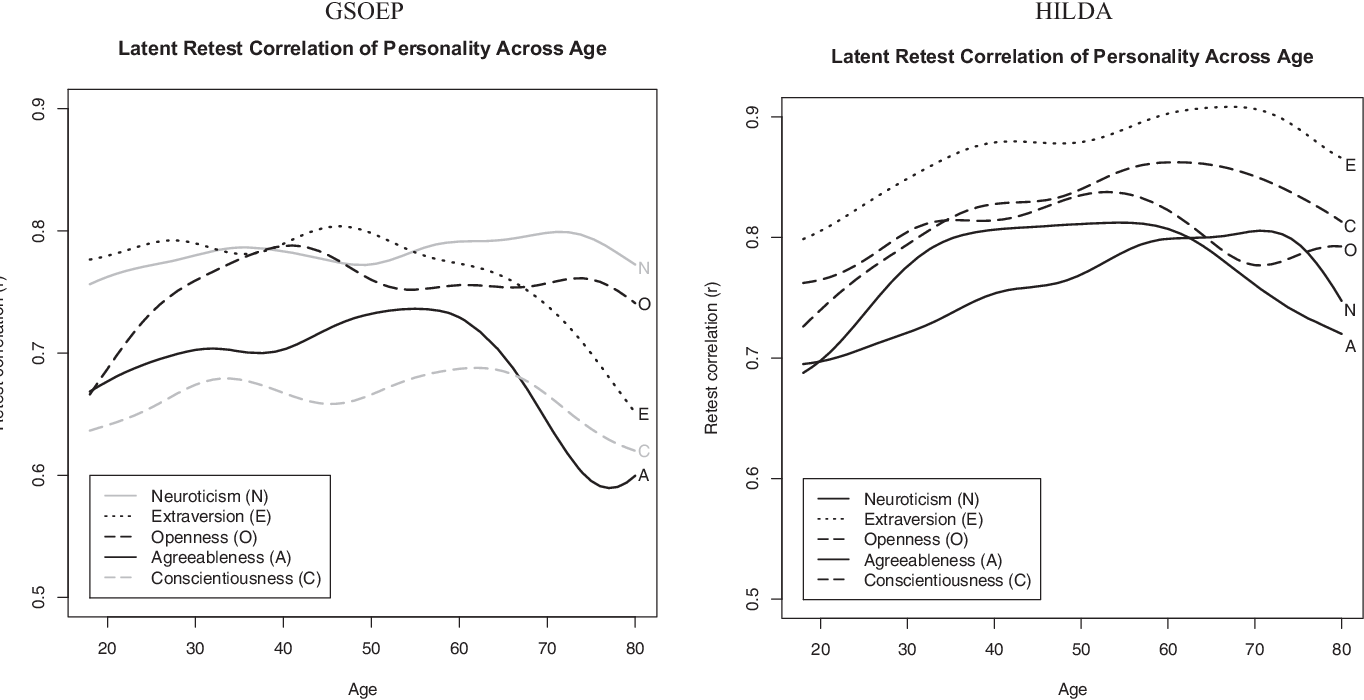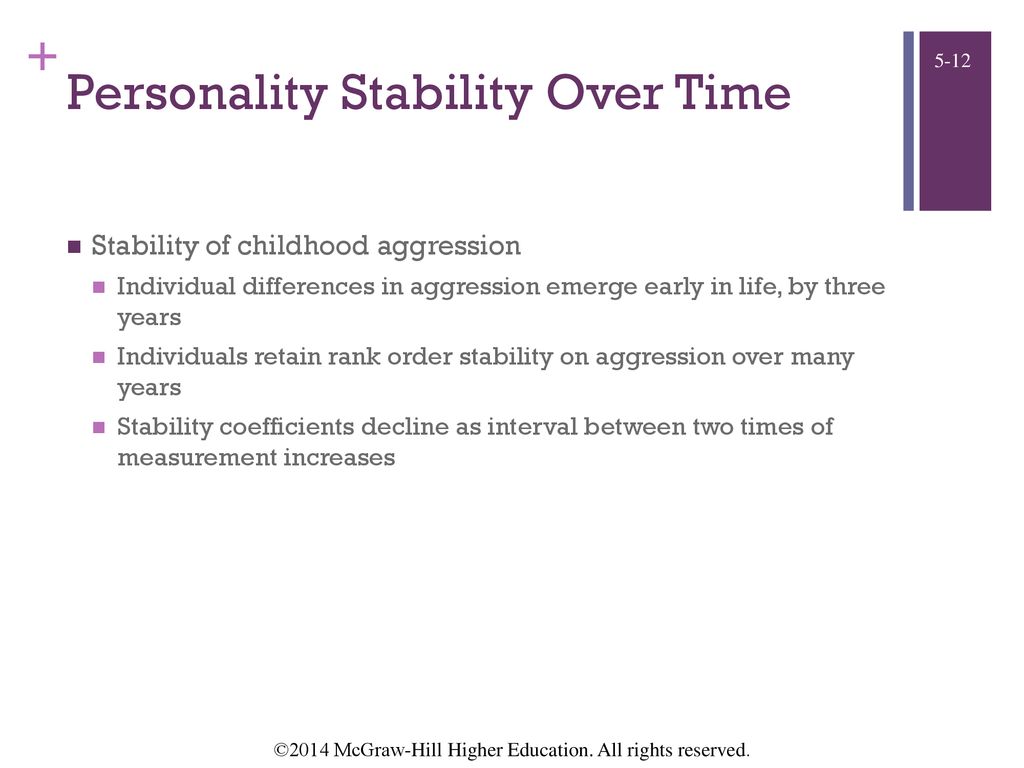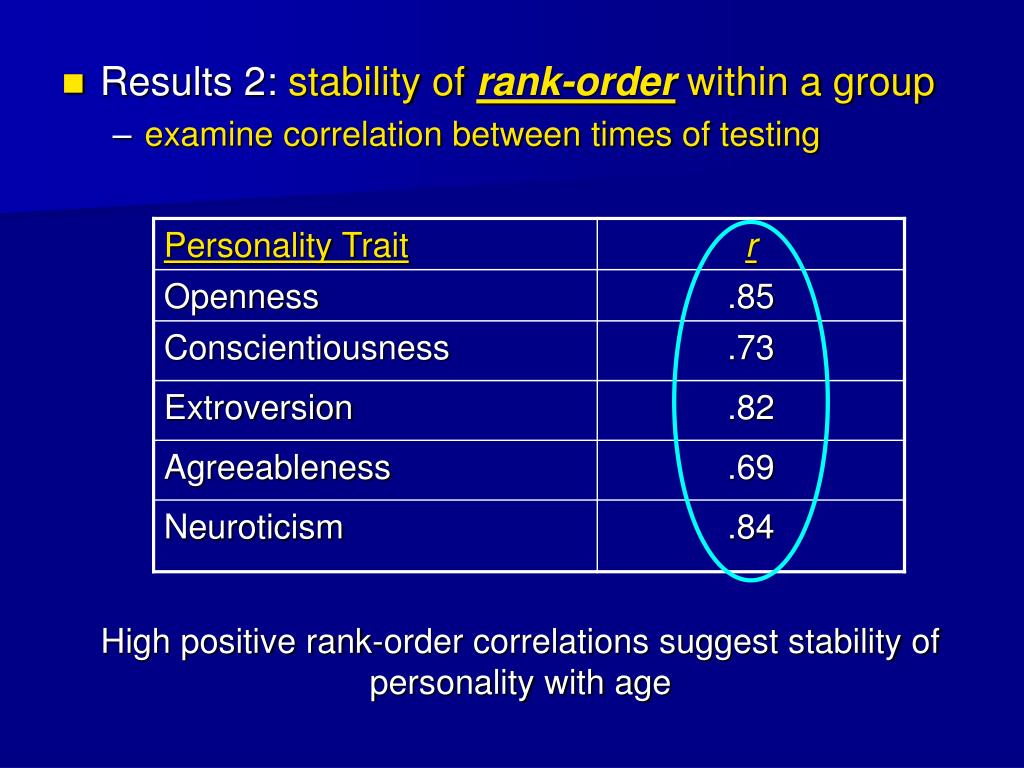How Is Age Related To Stability Of Personality

New research reveals a surprising trend: personality isn't fixed in youth. Decades-long studies now show that while personality traits begin solidifying in early adulthood, they continue to evolve, with stability increasing well into later life.
This article breaks down the connection between aging and personality stability, explaining what these findings mean for individuals and how they challenge previous assumptions.
The Shifting Sands of Self
For years, the prevailing wisdom suggested personality was largely set by age 30. Recent large-scale longitudinal studies, however, paint a different picture.
Data from the "Understanding America Study", involving thousands of participants followed over many years, demonstrates that personality traits like conscientiousness, agreeableness, and emotional stability show the most significant changes during young adulthood.
These findings, published in the Journal of Personality and Social Psychology, indicate personality development continues far beyond initial expectations.
Key Traits and Their Trajectories
Conscientiousness, marked by organization and responsibility, generally increases throughout adulthood. Researchers like Dr. Brent Roberts at the University of Illinois, have consistently shown that conscientiousness is linked to positive life outcomes, including career success and health.
Agreeableness, reflecting compassion and cooperation, also tends to rise with age. This increase might be due to greater social connectedness and a desire for harmonious relationships as individuals mature.
Emotional stability, often viewed as the inverse of neuroticism, shows the most dramatic positive changes. Individuals typically become less anxious, stressed, and reactive as they age, achieving a greater sense of inner peace.
Where Does This Stability Come From?
The factors driving this increased personality stability are complex and multifaceted. A combination of life experiences, social roles, and neurological changes are believed to contribute.
Life events such as marriage, parenthood, and career advancement can drive behavioral changes. Fulfilling specific social roles pushes individuals to adopt behaviors consistent with those roles, further reinforcing specific personality traits.
For example, becoming a parent often increases conscientiousness and agreeableness. Simultaneously, brain regions responsible for emotional regulation mature, further cementing emotional stability.
Challenging Conventional Wisdom
These findings challenge the long-held belief that personality is largely fixed in early adulthood. They suggest that individuals retain the capacity for personal growth and development throughout their lifespan.
This research also highlights the importance of considering age as a significant variable in personality studies. The older an individual gets, the less personality tends to fluctuate, demonstrating an arc toward stability.
Furthermore, understanding these age-related personality shifts has potential implications for various fields, including mental health, career counseling, and relationship advice.
Implications for Mental Health
Recognizing that personality can evolve into increased stability with age offers hope for those struggling with mental health challenges. Individuals with anxiety or depression may find comfort in knowing that emotional stability can improve over time.
Therapies tailored to promote personality growth, focusing on cultivating conscientiousness, agreeableness, and emotional regulation, can be particularly beneficial. This creates possibilities for interventions to actively promote healthy personality development at any age.
Future Directions
Ongoing research is focused on pinpointing the specific biological and environmental factors that contribute to personality stability. Researchers are exploring how genetics, social networks, and cultural norms interact to shape personality trajectories.
Future studies will also investigate individual differences in personality stability, aiming to identify why some individuals experience greater changes than others. This exploration might reveal critical insights into resilience and healthy aging.
The National Institute on Aging is funding several large-scale longitudinal studies. These studies aim to provide a deeper understanding of the relationship between personality, aging, and overall well-being.


















